How Do Cats Purr And Why?
This page contains affiliate links. We may earn money or products from the companies mentioned in this post through our independently chosen links, which earn us a commission. Learn More
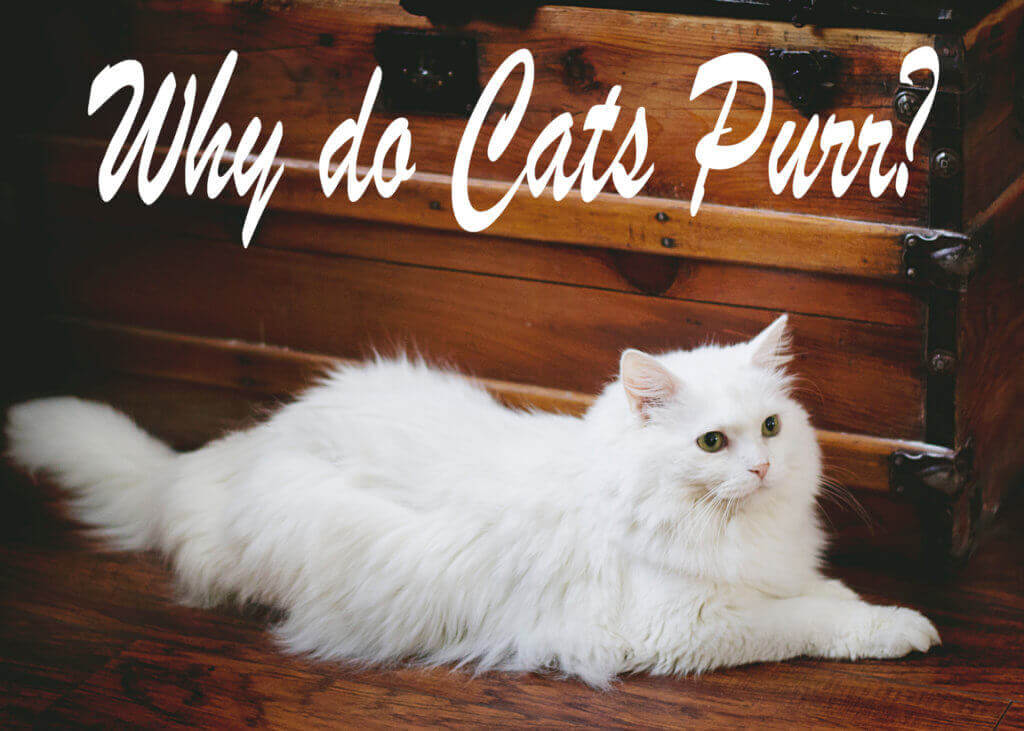
When a cat purrs, you may think it is as simple as a human smiling or a dog wagging his tail in excitement, but it is a little more complicated than that. According to studies, cats do not just purr when they are happy but also when they are anxious or afraid.
Also a domestic cat’s purr has a frequency of between 25 and 150 Hertz, which happens to be the frequency at which muscles and bones best grow and repair themselves.
Because of this, it is believed, that cats naturally evolved their purr over time as a survival tactic as a bio-mechanical healing mechanism for speedier recoveries.
What Does It Mean When A Cat Purrs?
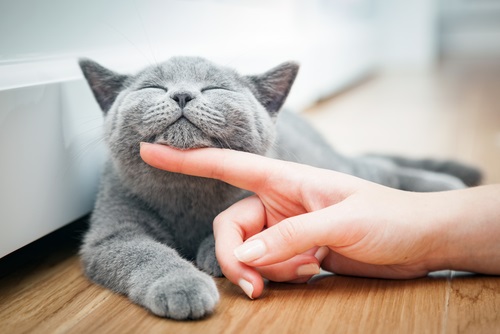
Animal behaviorists believe that the original purpose of purring was for a mother and kitten to communicate with each other.
Because kittens are born blind and deaf, a mamma cat can communicate with her babies through the vibrations of her purrs.
Because they cannot meow while nursing, a kitten might purr to tell his mother they are well and doing fine.
Purring may also serve as a bonding mechanism between a kitten and its mother, and the mamma may purr back to reassure her babies.
Purring behavior learned as a kitten carries into adulthood which maybe why your cat purrs while being petted, he is letting you know everything is good.
Adult cats may purr when approaching other cats to let them know they are friendly. Or cats may also purr when they are afraid or distressed, possibly as a way of reassuring themselves.
Many domestic cats purr to indicate hunger, and some cats can even develop a special purr to ask their owners for food.
This attentive purr incorporates cries with similar frequencies as those of human babies.
This means a smart kitty has learned their owners weakness and maybe able to obtain more food or treats.
Not only does purring help sooth your cat, but it is thought that there are health benefits for the owners.
According to https://petbibles.com/, cat owners are at 40 per cent lower risk of a heart attack and lower blood pressure after interacting with cats and hearing their soft purrs.
How Do Cats Purr?
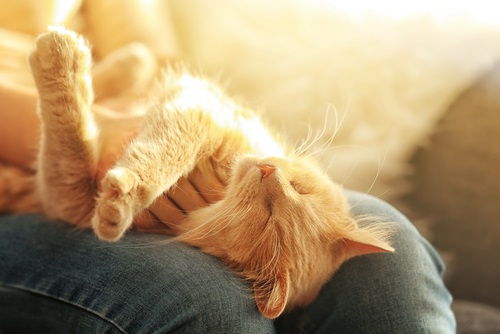
Purring involves the rapid movement of the muscles of the larynx (voice box), combined with movement of the diaphragm.
The muscles move at around 20 to 30 times per second. As the cat breathes, air touches the vibrating muscles which produces the purr.
Each cat’s purr is different, with some having a high pitched purr and others emit a low rumble.
Some purrs are so faint you have to be extremely close to your cat to hear it while others are extraordinarily loud.
Do Big Cats Purr?
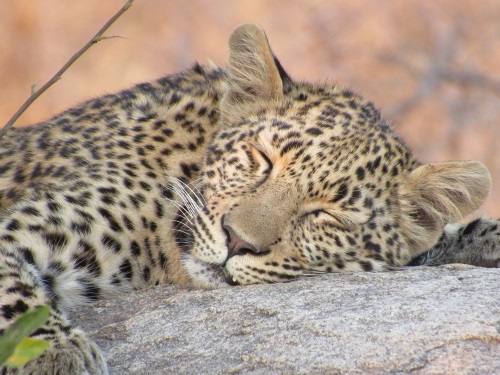
Your house cat isn’t the only one who purrs. Big cats that do not roar, such as mountain lions and ocelots, are known to purr.
There are even some reports of leopards purring.Not just wild cats but their relatives like the civets, genets and mongooses purr, as well as hyenas, raccoons and guinea pigs.
But it’s probably fair to say that the domestic cat or house cat, is the purring titleholder.
However, cats that purr can not roar, and cats that roar can not purr because the structures surrounding roaring cats’ larynx’s aren’t stiff enough to allow purring.
What If Your Cat’s Purr Changes?
Changes in your cat’s purr or meow could mean your cat is ill. Conditions such as inflammation of the epiglottis, tracheal and laryngeal cancer or hyperthyroidism could change the sound or frequency of your cat’s voice and purr.
A sudden development of drooling in a cat who has never drooled before may also indicate illnesses such as liver or kidney failure, oral disease or poisoning. Consider a change in purring seriously, and call your veterinarian.
Conclusion
One thing we know for sure is cats purr intentionally and it is not an involuntary reflex.
That means when your kitty climbs into your lap and starts his motor, you should feel flattered and lucky. Cat owners seem to agree that a purr seems to indicate a happy cat.
Sources:
https://pets.webmd.com/cats/why-do-cats-purr
https://www.loc.gov/everyday-mysteries/item/why-and-how-do-cats-purr/
Why Do Cats Purr? NC State University College of Veterinary Medicine Behavior Expert Explains

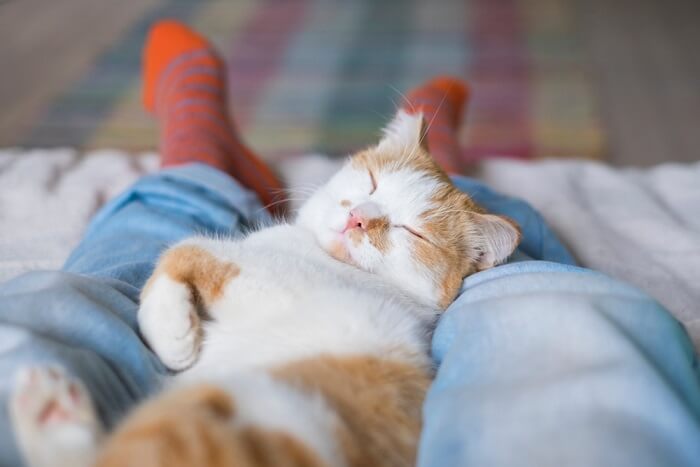
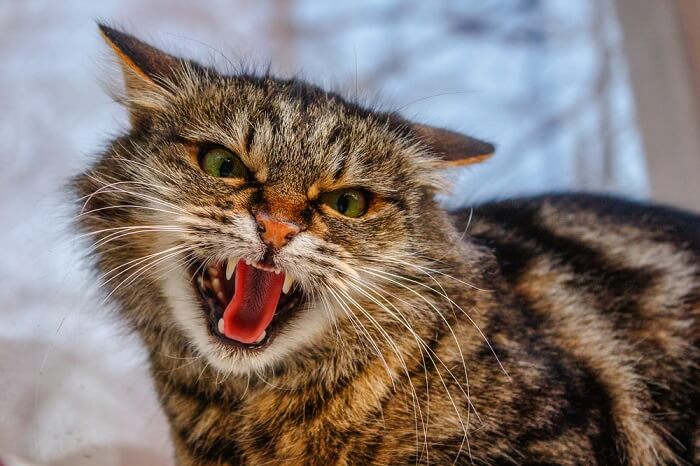
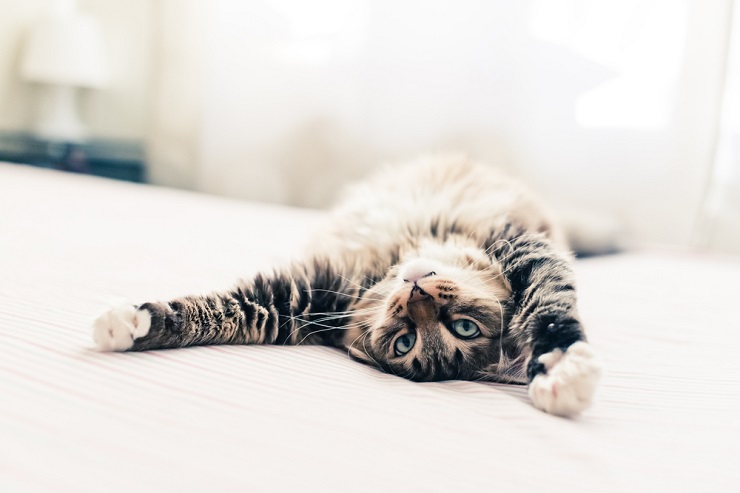
Smith Mario
Seriously I used to think that there is a problem with my loving Meeko cat when I hear the purring sound. She is the first cat I have adopted and lived together until now, so I have quite little experience in understanding their behavior. Then my mom told me that it's normal for a cat to our, which helps me a lot with feeling so relieved.